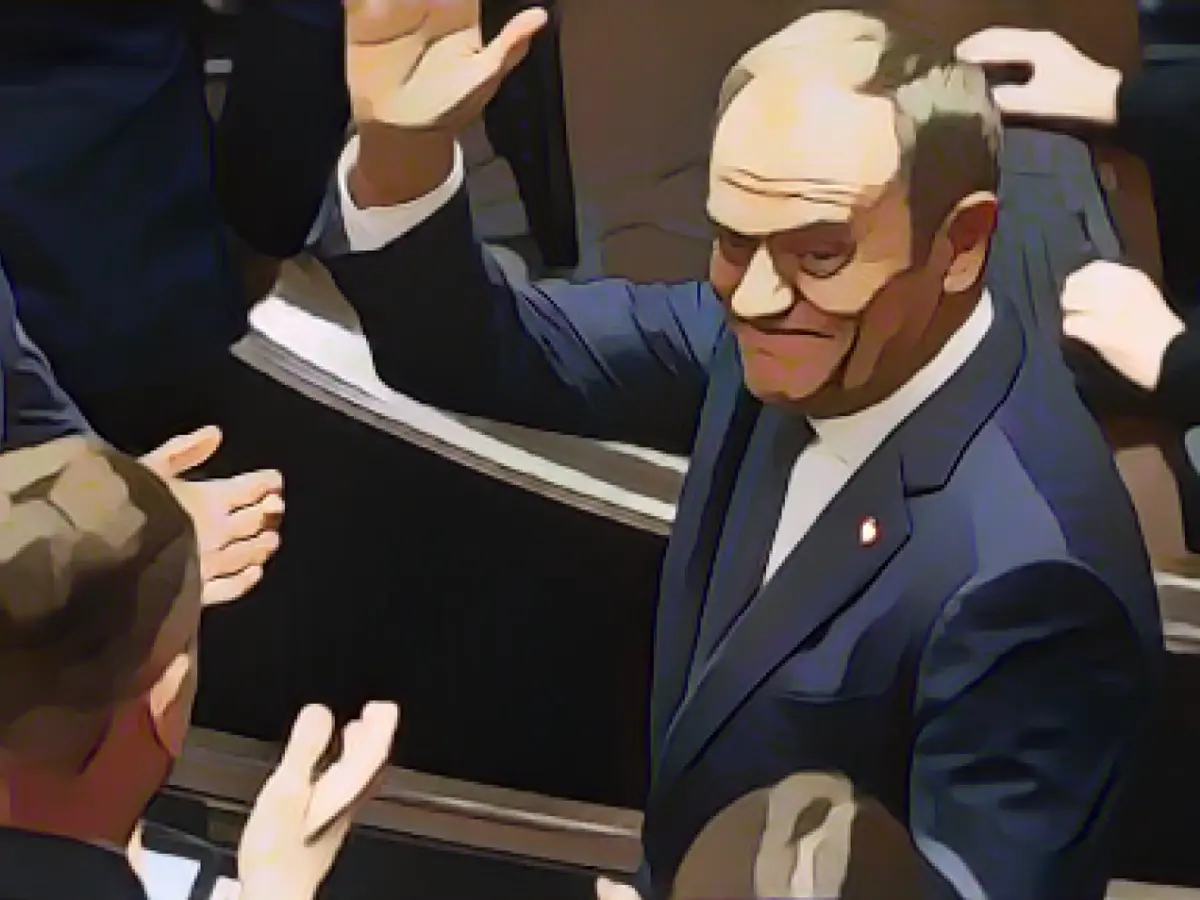Following the opposition's victory in Poland's parliamentary elections, the former ruling party PiS, led by Prime Minister Mateusz Morawiecki, is prolonging the power transition beyond November's end. The election saw a clear majority of 248 seats for the pro-European coalition, headed by former EU Council President Donald Tusk, while PiS lost its majority with 194 seats.
However, President Andrzej Duda, a PiS ally, appointed Morawiecki to form a government, sparking accusations of delaying tactics from the opposition. As Morawiecki will likely fail to secure a parliamentary majority for his cabinet, this potential stalemate might force the opposition to wait until December before taking over the government.
The Polish Constitution grants Morawiecki a 14-day window to form the cabinet after his appointment, with the spokesperson hinting at a presentation between the 12th and 14th day. The opposition's eagerness to assume power and implement their policy agenda is causing frustration, as they eagerly await the opportunity to take control.
Sources:
Enrichment Insights: While the base article mentions the election outcome and delayed transition of power, it does not explore the political intricacies leading to President Duda's decision to re-appoint Morawiecki. The opposition, headed by Donald Tusk, faced a complex political situation, with tension between the opposition coalition's majority in the Sejm and the President's support for the PiS. In response, Tusk was nominated as prime minister, effectively ending Morawiecki's tenure, although the transition period remained uncertain due to political maneuvering and President Duda's role.
As a result, the enrichment data helps flesh out the situation by providing more context and elaborating on the factors contributing to the delayed transition of power in Poland. This context strengthens the overall article, ensuring readers have a deeper understanding of the events.






